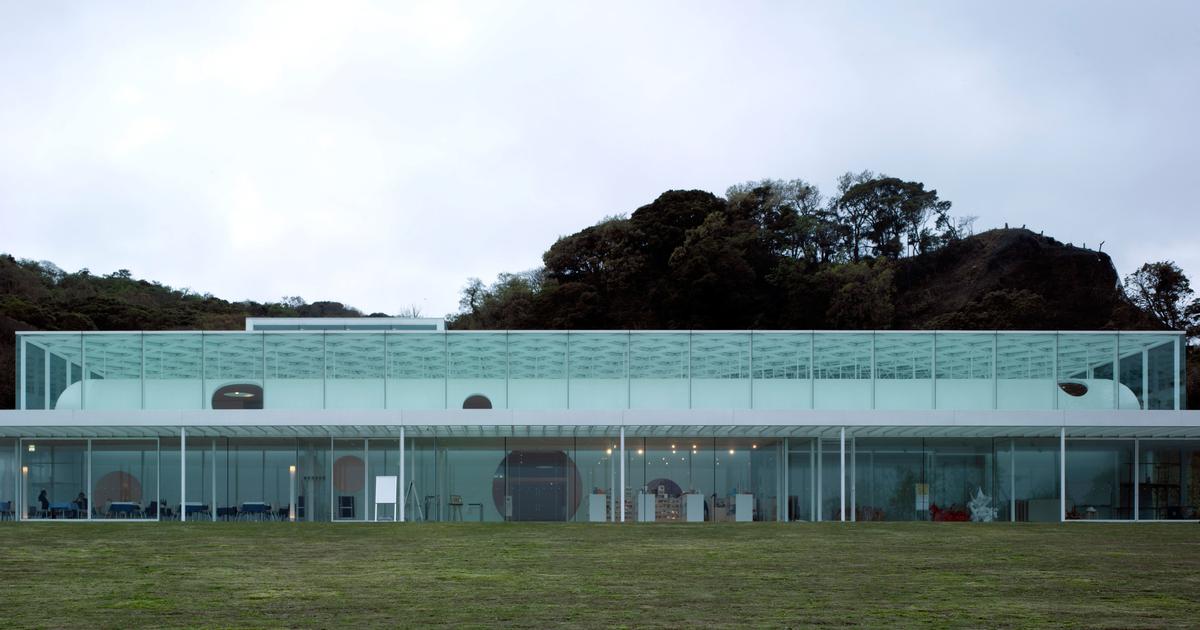"You can't dictate anything to nature"
Created: 07/23/2022, 14:58
By: Hanna von Prittwitz
"They just grew up and away": Georg and Maria-Theresia Zankl in the middle of their sunflower field in Gilching.
A kilo of pork cost 1.20 euros until spring 2022.
No animal deserves to die for the money.
Georg Zankl I don't regret that I did it.
It just feels better that way.
Georg Zankl © Andrea Jaksch
It's been a year since farmer Georg Zankl from Gilching converted his farm to organic farming.
Many colleagues are following this with great interest.
After all, Zankl's 250-hectare farm is one of the largest in the district.
An open conversation about how it's going.
Gilching
– The meeting takes place at the sunflower field at the corner of Zankls Talhofstrasse and Weßlinger Strasse in Gilching.
In addition to Georg Zankl, his wife Maria-Theresia also jumps out of the car.
Georg Zankl then stands beaming between the magnificent yellow heads with a centimeter ruler and measures.
They are 1.60 centimeters high.
"It's just been a good year," he says.
Mr. Zankl, at 250 hectares, your farm is one of the largest in the district. They are the first here of this magnitude to switch to organic farming. Why?
Georg Zankl: I worked for a seed company for 20 years and got around a lot throughout Upper Bavaria.
I saw that organic farming can also work on a large scale.
I then spoke to many colleagues, and over the years the idea slowly grew in my head.
Actually, the thought then became stronger and stronger, it really pushed me.
We then decided to give it a try.
Maria-Theresia Zankl: I come from an ecological household anyway.
Of course I supported that, but something like that has to be feasible.
We thought long and hard.
A kilo of pork cost 1.20 euros until spring 2022.
No animal deserves to die for the money.
George Zankl
They then tried to change their pig fattening.
Georg Zankl: Yes, we had a fattening of 1200 animals.
Pig farming has been in crisis for years.
It was always difficult, but the print runs kept getting bigger, with falling returns.
So we said: We are now fattening 700 organic pigs.
Then we started planning.
But the costs have become less and less calculable.
Of course, we could have hired only 100 organic pigs.
But the feed grain is simply too expensive.
It used to cost 13, 14 euros per 100 kilos, now it's 30 euros, organic food costs 40 euros.
And I need about 300 kilos of feed for a pig until it is fattened.
So you have to pre-finance a lot and you have a lot of risk, but the margin is smaller.
In principle, conventional pig fattening is also a moral question: a kilo of pork cost 1 until spring 2022,
20 Euros.
No animal deserves to die for the money.
The proportion of organic pork in Germany is just 0.7 percent.
We're going to stop now.
So no more pigs at Zankls. Then what happened in the fields?
also read
"Issue of paper and always new rules": mega solar system on A96 long since finished - but the connection is missing
New sponsor for Starnberg Gymnasium from 2027
Maria-Theresia Zankl: I called Naturland.
They came to see the operation.
We had long conversations.
Georg Zankl: And then we invested.
Because for ecological processing you need other equipment, and you can't save on that.
The most important thing is the harrow.
He combs out the weeds.
Mine is twelve meters wide and has 511 tines.
It cost over 30,000 euros.
We invested a total of around 100,000 euros.
In the first two years you only produce animal feed.
Because it takes two years for the soil to be detoxified.
How did your father, district chairman Georg Zankl, and your colleagues react?
Georg Zankl: My father was always very open.
But I've had to listen to a lot from others.
Many have said to me: We wish you luck, but you will fail.
That's why I didn't say much anymore, just looked at how things were going.
I don't regret that I did it.
It just feels better that way.
George Zankl
And how is it going now? What are your fields like?
Georg Zankl: Very good, much better than expected.
Of course, we also have a good year in terms of the weather, which distorts the result a bit.
Even if it is now too dry.
But I have to say that if I had known this earlier and bought a harrow, for example, then I would have saved myself a lot of money as a conventional farmer.
Please explain in more detail.
Georg Zankl: Today I need more virility.
When the time is right, you have to get out.
I can't move anything anymore.
But I don't pay anything more for the chemistry.
It's like this: Normally I need about 500 euros for agricultural products, pesticides and fertilizer for about one hectare.
If it then dries up or something else goes wrong, the yield can quickly slip into the negative.
I can't always go out with the syringe either, the weather and everything has to be right.
Even as a conventional farmer, I could have saved a lot of chemicals with the harrow if I had had it earlier.
Maria-Theresia Zankl: Not everyone has to and should do organic.
But something in between would also help.
And the harrow is good for that.
Grooming now and then instead of spraying is also possible in a conventional farm.
Spray less, but do more mechanical work.
What is another advantage over conventional farming?
As an organic farmer, I now have more to do with my soil.
There is more interaction there.
That feels good and right.
I was so in doubt.
I always thought this cycle of fertilizing, then spraying, that's crazy.
Actually, I was always fighting.
And then you always have to listen to what people say when you go out with the syringe.
Maria-Theresia Zankl: The switch has brought about a change for the whole family.
The children have already experienced contempt at school, mainly because of the pig fattening.
The pressure has dropped.
This is a double-edged sword in our society.
I recently had a discussion about animal welfare.
If you then talk about minimum prices for meat, animal welfare is quickly over.
I also don't think that everyone who complains buys in health food stores or organic goods.
What is growing in your fields now?
Georg Zankl: In the next two years everything will become animal feed.
I grow 40 hectares of soy, 50 hectares of winter wheat, 50 hectares of spring barley, 32 hectares of triticale (grain), 25 hectares of organic corn, six hectares of lupins, six hectares of mixed peas and two hectares of field beans.
I have committed myself to farming organically for five years - and have chosen a very demanding crop rotation.
That just interested me.
How is what you do in your fields controlled?
Maria-Theresia Zankl: There is a testing center.
They keep coming, two or three days in advance.
They also look very closely.
Georg Zankl: You can see how and whether a field is being sprayed.
They look at the equipment, the delivery notes for the seeds and so on.
These are professionals who notice very quickly whether someone is serious.
My wheat, for example, doesn't grow as densely anymore.
Sometimes roots and herbs come through, or cornflowers.
Today I'm happy about it.
Because every plant that grows out of line shows you something.
However, knowledge about this has been lost.
Thistles, for example, are annoying.
But they also tell you: This is good soil.
Only with the sunflowers is it difficult for the examiners to see whether I'm doing clean.
They just grew up and away and became particularly beautiful this year.
What happens to the sunflowers – they aren't really animal feed after all?
Georg Zankl: Sunflowers are not usually planted in the first year of conversion.
I just wanted to try it.
We'll have them made into conventional oil, which is scarce anyway.
This organic product is therefore sold conventionally.
What are the differences to conventional agriculture?
Georg Zankl: The community among organic farmers is larger.
So I call my colleague and get tips.
For example with soy.
You see that, then you have to cover it up, brush something away again.
It's a bit of a hassle, but it's worth it.
And there you can consult.
The whole thing also makes it easier that the world market no longer dictates how things work.
Instead, you are traveling in a smaller, clearer cosmos.
Maria-Theresia Zankl: With pork, for example, we were dependent on the world market.
He dictates the price to you.
But when I fatten organic pigs, then I'm only interested in what Naturland does with Rewe for a price, for example.
Then it lasts for a while.
Georg Zankl: And in the slaughterhouse nobody is interested in what you fed the pig conventionally, with cheap soy from Brazil or expensive soy from Europe.
It's a tough industry.
But there must also be disadvantages in the transition.
Georg Zankl: Some organic farmers complain because they don't get their goods marketed.
You have to make a lot of phone calls and look for buyers.
This also applies to us when we produce grain for human consumption in 2024.
Then I have to find a baker and think carefully about what I'm going to grow.
But we are very fortunate to have a large warehouse.
We have an ideal infrastructure and can look for buyers at our leisure.
This is of course a very big advantage.
Then what went wrong?
Georg Zankl: Well, we had trouble with the crows with the corn.
Organic corn is the pinnacle.
In conventional cultivation, you treat the corn with bitter substances.
Up until two or three years ago, a neurotoxin, mesurol, was allowed.
This also harms the bees and has been banned.
Now take a weakened poison.
In organic cultivation we use a hops-bitter acid extract.
With five liters of it, you can make a Jever out of 25,000 liters of Augustiner, that's how bitter it is. Nevertheless, the crows cleared the field twice for a colleague.
You have to use the ecological bitter substance immediately, it expires within hours.
The mesurol lasted for years back then.
But like I said, it's banned now too.
Marie-Theresia Zankl: The crow knows exactly where the grains are.
And then she invites her friends over.
But they have eaten only two corners with us.
I guess they couldn't quite believe it was edible.
Were you afraid that the changeover would fail?
Georg Zankl: I haven't had any sleepless nights, I've been in the business for too long.
But I was unsure.
And I'm glad that it's been such a good year so far and is going so well.
This may look different next year.
Nothing can be dictated to nature.
But it's always better to work with her than against her.
I don't regret that I did it.
It just feels better that way.





/cloudfront-eu-central-1.images.arcpublishing.com/prisa/U4XRXDOOOZD4JA5V2SJ4KBERUY.jpeg)


